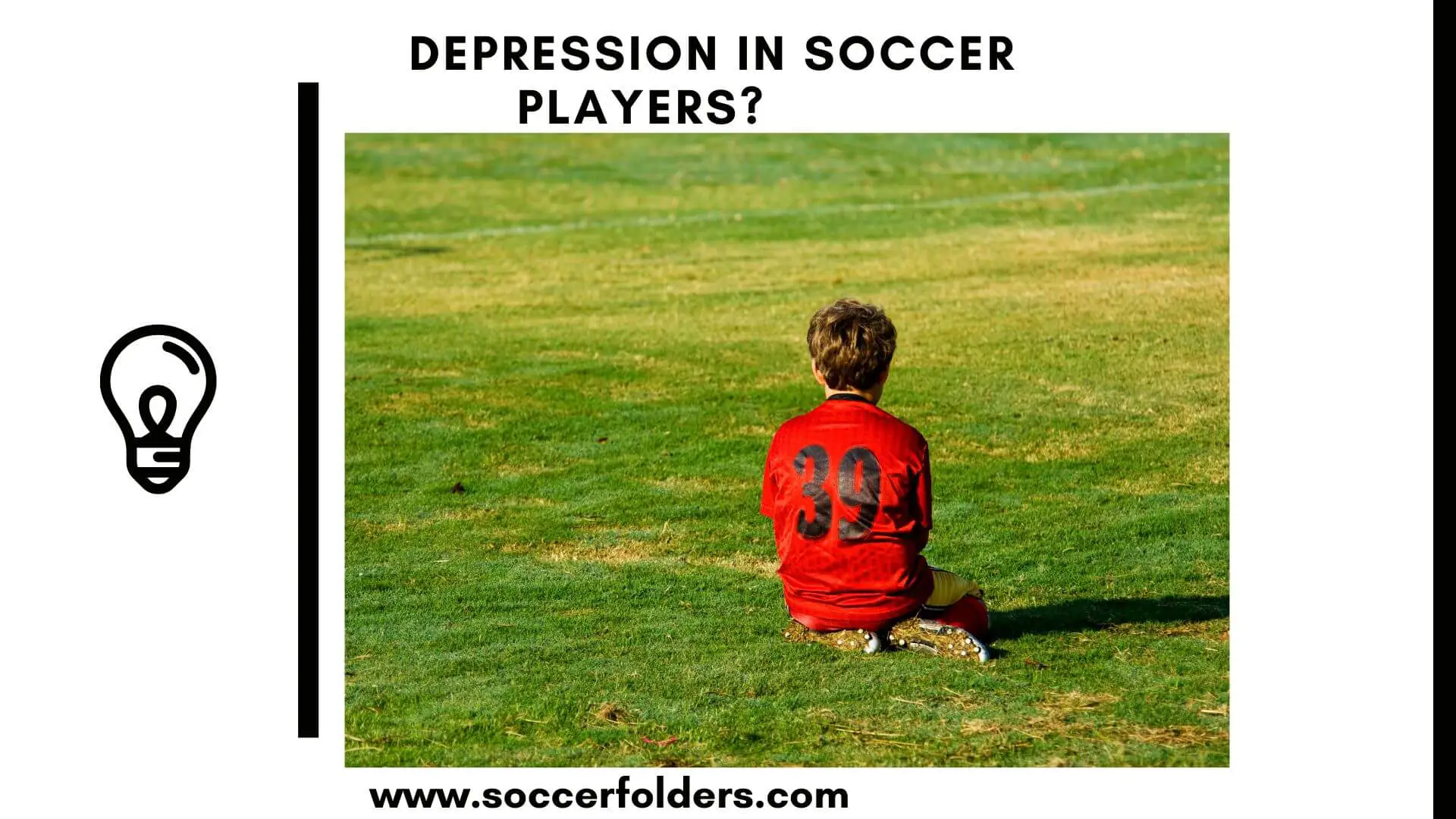Soccer is the most popular sport in the world, watched and played by millions of people. It is also a physically demanding sport that requires discipline, focus, and intense training.
But what many people don’t realize is that professional soccer players can also struggle with their mental health, including depression.
In this article, we’ll delve into the reality of depression among soccer players and what can be done to help.
Let’s get started.
- Do Soccer Players have Depression?
- Depression in Soccer Players
- The Stigma of Mental Health in Sports
- The Role of Coaches, Teammates, and Families in Supporting Players with Depression
- The Role of Media in Perpetuating the Stigma Surrounding Mental Health in Sports and its Impact on Players
- The Impact of Injury on a Player’s Mental Health and the Risk of Depression
- Final Thoughts
Do Soccer Players have Depression?
Yes, soccer players, like all people, can experience depression. Mental health is an important aspect of overall health and well-being, and it’s important for anyone experiencing symptoms of depression to seek support from a mental health professional.
Depression in Soccer Players
The pressure to perform, the constant scrutiny from fans and media, and the physical demands of the sport can all contribute to depression in soccer players.
In addition, the constant travel and separation from loved ones can also take a toll on a player’s mental health.
Depression is a serious mental health condition that can affect a person’s mood, thoughts, and behaviours.
Symptoms can include feelings of sadness, hopelessness, and loss of interest in activities once enjoyed.
Depression can also cause physical symptoms, such as fatigue, changes in appetite and sleep patterns, and difficulty concentrating.
==>>You can also read my full article about soccer mindset to know how to deal with depression in soccer.
The Stigma of Mental Health in Sports
Unfortunately, there is still a stigma surrounding mental health in the sports world, and many athletes feel pressure to hide their struggles.
This can make it difficult for players to seek help when they need it and can perpetuate the myth that athletes are immune to mental health issues.
Breaking the Stigma
To break the stigma surrounding mental health in sports, it’s important to promote open and honest conversations about the issue.
Teams, organizations, and leagues can also provide resources and support to players who are struggling with their mental health.
This can include access to mental health professionals, support groups, and confidential counselling services.
Depression is a real and serious issue for soccer players, and it’s important to address it head-on.
By breaking the stigma surrounding mental health in sports and providing resources and support to players, we can help ensure that professional soccer players have access to the care and support they need to maintain their mental well-being.
The Role of Coaches, Teammates, and Families in Supporting Players with Depression
The role of coaches, teammates, and families in supporting players with depression cannot be overstated.
These support systems play a critical role in helping players feel understood and validated, and in encouraging them to seek help.
Coaches can create an environment of openness and support within the team, and provide players with resources and support when needed.
Teammates can offer a sense of camaraderie and understanding, and can also help to break the stigma surrounding mental health in sports.
Family members can provide a listening ear, and emotional support, and can also help players find the resources they need to get help.
So, by working together, coaches, teammates, and families can help create a supportive and inclusive environment that allows players to feel comfortable seeking help when they need it.
The Role of Media in Perpetuating the Stigma Surrounding Mental Health in Sports and its Impact on Players
The media plays a significant role in perpetuating the stigma surrounding mental health in sports.
Often, the media focuses on the physical prowess and success of athletes and overlooks the emotional and mental toll that high-level competition can have on players.
This can lead to the false perception that athletes are immune to mental health issues, and can discourage players from seeking help when they need it.
The media can also contribute to the stigma by presenting mental health issues sensationally or stereotypically, or by assuming that mental health problems are a sign of weakness.
This can further discourage players from seeking help and can make it difficult for them to talk openly about their struggles.
The impact of media perpetuation of the mental health stigma can be severe and long-lasting and can prevent players from getting the support and care they need to maintain their mental well-being.
The Impact of Injury on a Player’s Mental Health and the Risk of Depression
Injuries can have a significant impact on a player’s mental health and increase the risk of depression.
An injury can disrupt a player’s routine, sideline them from the sport they love, and create feelings of frustration and disappointment.
The physical pain and limitations of an injury can also contribute to feelings of sadness and hopelessness.
Also, the long-term effects of an injury, such as decreased mobility or the inability to perform at the same level, can impact a player’s self-esteem and lead to depression.
The stress of rehabilitation and the fear of re-injury can also increase the risk of depression in players.
It’s important for players to have access to mental health resources, such as counselling and support groups, to help them cope with the emotional challenges of injury and reduce the risk of depression.
Early intervention and treatment can also be crucial in preventing depression and helping players regain their emotional well-being.
Final Thoughts
it’s important to remember that mental health is just as important as physical health and that no one, including professional soccer players, is immune to depression.
If you or someone you know is struggling with depression, it’s important to seek help from a mental health professional.
Hope you have gained value from this article.



